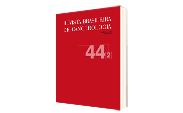Psychological approach of pre-operatory cancer patient
DOI:
https://doi.org/10.32635/2176-9745.RBC.1998v44n2.2805Keywords:
Psycho-Oncology, Psychological Approach, Doctor - Patient Relationship, Healthcare Team, Cancer PatientAbstract
This paper intends to express some thoughts on the interrelations that are established between the oncological patient, his family and the health care team, emphasizing the pre-operatory psychological focus on the diagnostic and staging phases as well as the period the patient stays at the hospital. Considering that the quality of these relationships can influence the acceptance of the diagnosis and the proposed treatment, the most frequent difficulties are mentioned and some possible ways of dealing with them. Our goal is to help the healthcare team, specially the oncological surgeon, to better understand what goes on with the patient, his needs and the pitfalls in communication between himself and the staff which may facilitate or make difficult a good therapeutic alliance. The different contributions that a psychologist may offer at a hospital are mentioned, once he/she considers not only the patient and family, but also the health professional, who may be stimulated to broaden his focus of attention and take advantage of the benefits of the exchange with the stajf psychologist. The idea that all those involved in a treatment process may gain if the patient is seen by a psychologist who helps him/her deal with his anxieties, is advocated. The two main moments for this are during staging, when diagnosis and treatment are defined and during the period the patient is at the hospital.
Downloads
References
Mauksch, H. - “O contexto organizacional do morrer”. In: Kübler - Ross, E.: Estágio final da evolução. Rio de Janeiro: Ed. Nova Era, 35-54, 1996.
Minuchin, S, - Família, Funcionamento e Tratamento. Porto Alegre: Ed. Artes Médicas, 1988.
Kübler-Ross, E. - Sobre a Morte e o Morrer. São Paulo: Ed. Martins Fontes, 1981.
Halldórsdóttir, S.; Flamrim, E. - Experiencing existencial changes: the lived experience of having cancer. Cancer Nursing, 19(1): 29-36, 1996. DOI: https://doi.org/10.1097/00002820-199602000-00004










